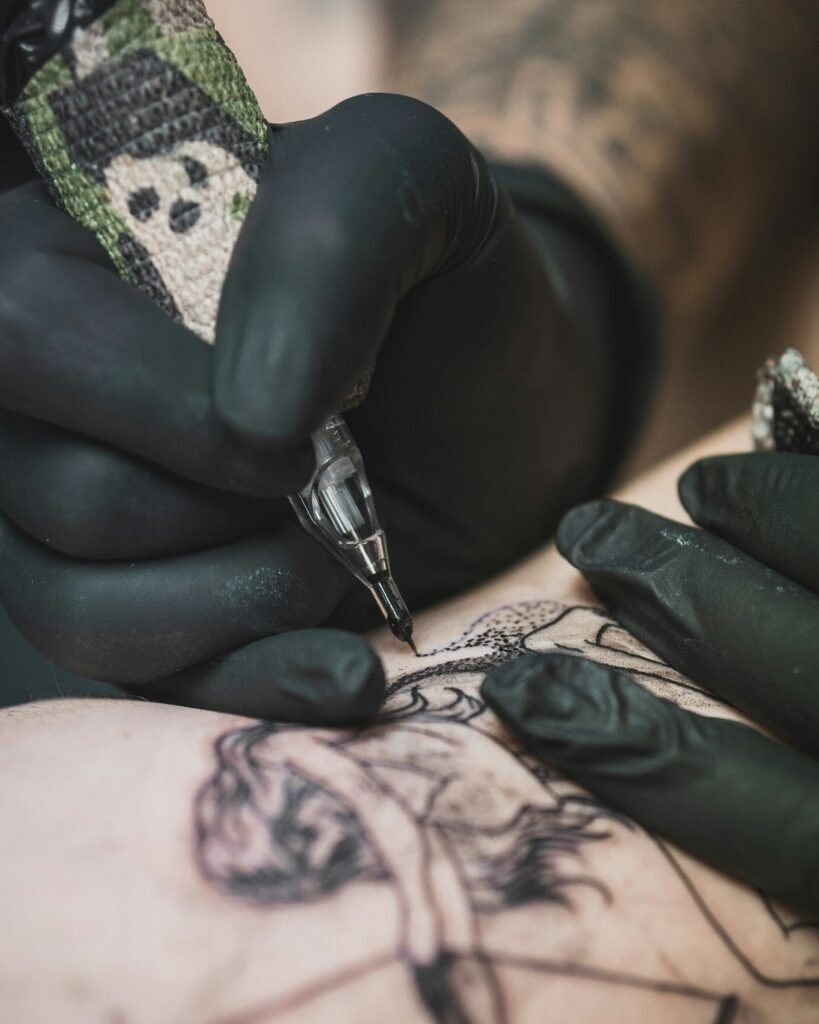Tattoos have become a popular form of self-expression around the world, with millions of people choosing to mark their bodies with ink. While tattoos are generally safe when performed by professional artists under sterile conditions, they’re not entirely without risks. Here are some hidden health concerns that anyone considering a tattoo should be aware of.
1. Infection
One of the most common risks is infection. Unsterilized needles or unsanitary environments can introduce bacteria, viruses, or fungi into the skin. Symptoms may include redness, swelling, pus, fever, or even sepsis in severe cases. Proper hygiene and licensed tattoo parlors significantly reduce this risk.
2. Allergic Reactions
Tattoo ink, especially red, yellow, and green pigments, can cause allergic reactions. These may present as itchy rashes, bumps, or chronic inflammation—even years after the tattoo was applied. In rare cases, individuals may experience severe reactions that require medical intervention.
3. Skin Disorders
Some tattoos trigger dermatological conditions such as granulomas (small nodules forming around ink particles) or keloids (raised scars caused by overgrowth of tissue). People with a tendency for keloids should be especially cautious before getting tattooed.
4. Bloodborne Diseases
If tattoo equipment is improperly sterilized, it can transmit serious diseases such as hepatitis B, hepatitis C, or HIV. Although rare in regulated environments, this risk is much higher with unlicensed or underground tattoo artists.

5. Complications with MRIs
Though uncommon, some people report burning sensations or swelling in tattooed areas during MRI scans. Metallic pigments in certain inks can react to magnetic fields, potentially distorting images or causing discomfort.
6. Ink Toxicity and Long-Term Effects
Tattoo inks are not always fully regulated. Some contain heavy metals like mercury, lead, or arsenic, which can accumulate in lymph nodes or organs over time. Long-term effects of ink absorption are still being studied, and some researchers worry about potential links to cancer or other chronic illnesses.
7. Delayed Healing and Chronic Inflammation
Healing times vary by individual, but tattoos that don’t heal properly can lead to persistent inflammation. Factors such as poor aftercare, pre-existing skin conditions, or tattooing over scar tissue may delay healing and increase the risk of complications.
8. Psychological Regret and Body Image Issues
While not a physical health issue, tattoo regret can affect mental well-being. A poorly done or impulsively chosen tattoo may lead to anxiety, embarrassment, or body image issues—especially if it becomes a barrier to employment or social acceptance.
Conclusion
Tattoos are more than just skin deep. Though many people experience no complications, it’s important to understand the potential health risks involved. Choosing a reputable artist, asking about ink ingredients, and following aftercare instructions can go a long way in minimizing danger. As with any body modification, informed decision-making is key to keeping your art—and your health—intact.